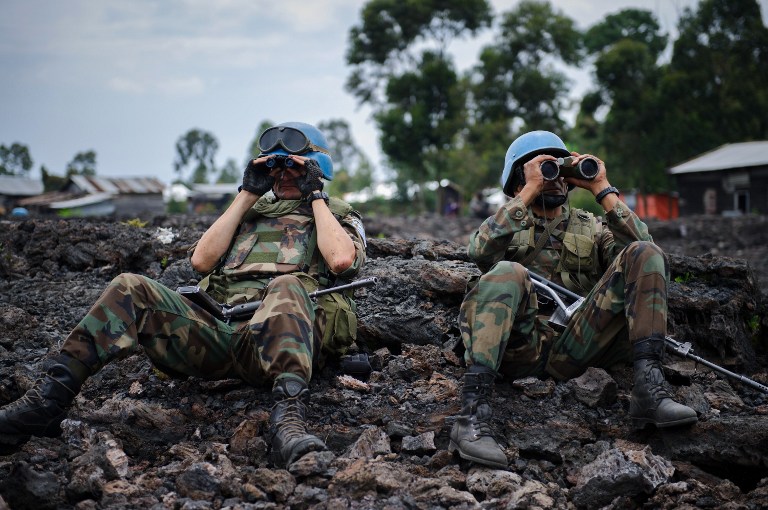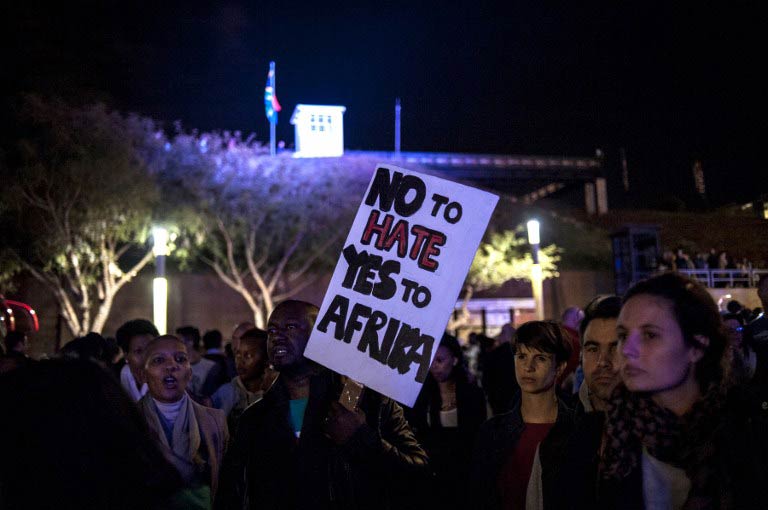
Yet another report of sexual abuse by United Nations peacekeepers has come to the fore, revealing that 480 allegations of sexual exploitation and abuse had been made between 2008 and 2013, of which one-third involved minors.
This is not ‘new’ news. UN peacekeepers have a long history of sexually abusing, exploiting and harassing women and children in places they have been appointed to serve, safeguard and stabilise.
Questions begin to arise. What do we do when those tasked with stabilising, destabilise further and those commissioned to protect victims, victimise them further? Where can these victims express their grievances?
This shameful practice by UN mediators has been (re)occurring for years, yet it goes under-reported. Where is the government that should be defending their exploited citizens? Where is our outrage as members of civil society? Where are the voices of the victims themselves?
Why do we not know them? Many stories go untold, cries go unheard and pain goes unfelt.
There are no answers and even worse, there are no questions. Just silence.
In the words of Dr Martin Luther King Jnr: “In the end we remember not the words of our enemies but the silence of our friends”.
Sometimes I think we live in silent societies.
Silence as children are being trafficked and sold into prostitution amongst other things. Silence as rape victims are encouraged to be quiet and are told that they “tempted” their predators. In many cases, victims contract HIV/AIDS and other STDs and STIs and see an end to their dreams, hopes and very lives. Countless shallow arguments such as “she wasn’t dressed appropriately” and other utter nonsense are used to justify and encourage this rape culture. And let’s not forget teenage pregnancy, prostitution and other repercussions of these atrocities.
Silence as some cultures and communities find no fault in child marriage and force hundreds of girls into this living hell. Can you ponder the scars they carry? The pain goes deeper than the evidence seen on their bodies from the physical violence and abuse that accompany these situations.
There is a trauma that comes from objectification, a disturbance birthed when human beings are subjugated to inhumane conditions.
Authorities display no accountability for their actions and refuse to answer our questions. No questions asked, no answers given, no dialogue, no conversation. Speaking is a privilege our kind of democracy does not endorse. More silence.
Yet there are those who have escaped the prisons of fear and those who still hope and dream of being heard, but they have their spirits crushed by the blatant and brutal reality of having no platform. Still, there is silence.
Despite quietude, I hear rowdy noises of protests and hashtags supporting human rights and dignity and the people behind them, labelled (or sometimes label themselves) as “activists” – yet away from computers, crowds, lights and cameras there is no action. Only silence because in reality, many don’t understand the dynamics of the causes they advocate both on social media and in real life. And sometimes despite their verbosity and polished politics they don’t take too long to show us their ignorance. Who benefits from all these fake revolutions?
Activity at times creates the illusion of mobility.
Silence that is not merely limited to the absence of speech but silence that is the absence of true action and consideration. Lack of consideration as our privileges make us less aware of the plight of others. And to those of us who are aware and not only represent but embody a common struggle, we are bullied, threatened and manipulated into silence.
Conditions may not always permit us to act out the changes we want to make outwardly but that should not discourage us from acting inwardly. Every time we try to understand a situation we act, when we question we act, when we empathise we act, when we pray we act, when we have conversations we act! And this action should never be perceived as worthless in the grand scheme of things. Before anything is manifested on the outside, it has to be established on the inside. The love, understanding, compassion, courage and most importantly hope that we silently build in our hearts is never silence!
I want to hear the voices of the oppressed and I want you to hear them too, even if they are not on the news or radio, even if they are not hashtags, even if they are not on the internet, even if your peers don’t discuss it. Even if the only place we can hear, see and feel their pain is inside ourselves.
Refuse to bask in the oblivion of silence. Refuse to be silenced.


